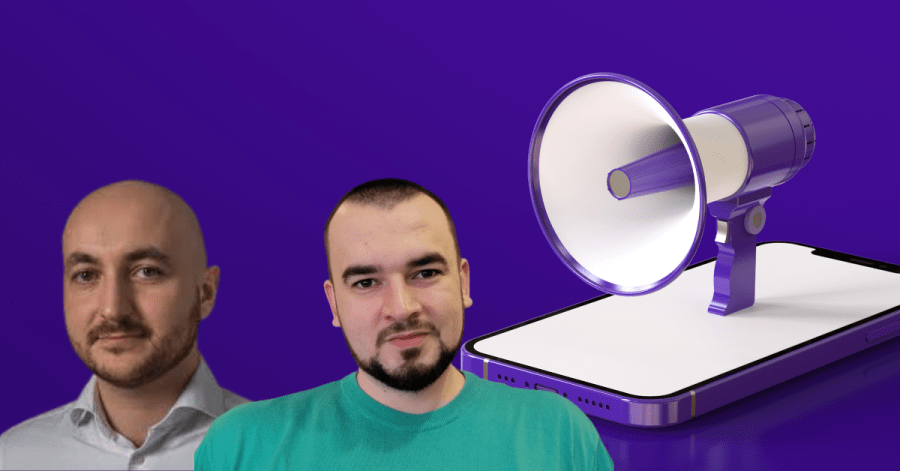Marketing is changing at an unprecedented pace. The world of artificial intelligence is stirring up a frenzy of excitement and controversy within the industry.
Marketers have always strived to connect with customers on a personal level, but the birth of ChatGPT takes personalization to a whole new level. Its ability to understand and generate natural language responses means that it can answer customer inquiries, provide recommendations, and even drive sales.
“I believe that people’s use of language and their understanding of social culture will improve as a result of the widespread use of ChatGPT. Rather than falling behind or being replaced by AI, we as a society will just push the boundaries of what is socially acceptable,” Ivan Dobrinov, Omni-Channel Perception Expert, Prompt Engineer, and founder of the human and AI perception agency TheSummary.Net tells me.
However, there are valid concerns about the use of ChatGPT in marketing. One major concern is the potential for biases in the language and responses generated by the technology. Such biases could negatively impact a brand’s reputation, and even worse, cause harm to society. Marketers must, therefore, weigh the potential risks and benefits of using ChatGPT carefully.
To delve into the impact of ChatGPT on the world of marketing, I talked with two pioneering ChatGPT marketing experts – Ivan Dobrinov and Tudor Iliescu, a tech business developer, and recent AI convert. Read further to explore the benefits and potential risks of ChatGPT in the marketing field.
The opportunity for ChatGPT in marketing
“Across the board, I am seeing better results from our current use of ChatGPT when it comes to social media marketing and sales. I have had some arguments with high-level marketers who are negative toward ChatGPT. What they often fail to admit is that we humans have a bit of a superiority complex when it comes to writing contact and being creative. And even though we can be very empathetic towards our customers, we cannot put ourselves 100% into the shoes of someone else. ChatGPT can,” Ivan says.
Tudor Iliescu also shares that he notices differences in customer engagement or response rates when using ChatGPT-generated content. The emails he drafts using ChatGPT have a higher reply and engagement rate. His presentations are also better received. “And it’s not just about generating text with ChatGPT, but more importantly, helping me with structure and insights I may otherwise overlook,” he explains.
So, the first thing that surfaced is ChatGPT’s ability to help marketers to engage with customers on a more personal level. With its natural language processing capabilities, the technology can help marketers tailor their messaging and create more personalized experiences for customers. Since the engine can be trained on specific data sets, marketing specialists can use it to generate responses that are tailored to individual customers.
“I have found ChatGPT to be super powerful in helping me save a ton of effort and time in doing audience research. Previously, when I had to find ways to resonate with the customers, especially in the B2C space, I had to go to forums to get familiar with their habits and manners of communication, аs well as talk to such people just to be able to resonate with them. Now, this is completely automated by ChatGPT. I use specific prompts to make ChatGPT emulate the type of person, that I want to resonate with. I ask engine-specific questions and even generate contacts in a way that will resonate with my target audience,” Ivan Dobrinov comments on the way ChatGPT has helped him automate some of his workflows.
Increased efficiency and reduced costs also sound like an enticing value proposition. Compared to hiring a team of content writers or customer service representatives, ChatGPT can be a cost-effective solution for generating marketing content and handling customer relations.
“I use ChatGPT to summarise emails, articles, and even books. I also use it to enquire on and/or summarise my own writing. Moreover, I’ve used ChatGPT to write a comprehensive case study (I more than halved the time spent on it). I haven’t yet started using it for social media content, although it gets tempting. And last but not least, ChatGPT also proves useful in writing prompts for MidJourney and other such tools. I’ve found that I am better at prompts designed for text output, rather than visual output, so I leverage this to my advantage,” Tudor Iliescu shares.
How to address potential risks?
First, there is the challenge of ensuring that ChatGPT is providing accurate and relevant information. While ChatGPT has been trained on a large amount of text, it may still generate biased or inaccurate responses, particularly in areas where the training data is lacking. As a result, marketers will need to carefully evaluate the responses generated by ChatGPT and verify them with additional research and analysis.
“I have been using ChatGPT (and other such tools) to partly automate general research. If given the proper context, asked the logical chain of questions, and provided examples, ChatGPT will unearth extraordinary results. In addition, I’ve been using ChatGPT to do all sorts of startup-related tasks: create SWOT analysis, generate press releases, enquire on VC targeting and approach, explore term sheets, etc. Basically, you can treat ChatGPT as a co-founder and talk to it like you would talk to an incredibly knowledgeable partner,” Tudor Iliescu highlights.
Moreover, ChatGPT may not always understand the nuances of human language and culture, which can result in misinterpretations and misunderstandings. This can be especially problematic when dealing with sensitive issues or topics that require a high degree of empathy and emotional intelligence.
Another challenge is ensuring that the language used by ChatGPT is appropriate for the target audience. ChatGPT may generate responses that are too technical or complex for some users, which could result in a negative user experience or reduced engagement. Marketers will need to ensure that the language used by ChatGPT is accessible and understandable to the intended audience, and may need to supplement ChatGPT’s responses with additional content or messaging.
“When I want to emulate a customer, I always start by helping ChatGPT understand the complexity of what I want to achieve. The more context you provide to the engine, the better and more goal-specific results it will give you. It’s like playdough – you have to shape it and give it as much context as possible about the specific person. I usually start analyzing specific parts of the human experience that would be relevant for this specific customer base in order to help me identify the words which would activate ChatGPT to start emulating this audience better,” Ivan Dobrinov advises.
Will ChatGPT substitute the role of the traditional marketer?
According to Ivan Dobrinov, ChatGPT should not be feared, as it has the potential to revolutionize the way businesses engage with customers. Dobrinov suggests that whenever a new technology is introduced, our societal expectations change, and marketers should not be scared and push back. He cites the example of vacuum cleaners, where the introduction of technology changed societal expectations of cleanliness and hygiene, resulting in people spending more time cleaning their homes. Similarly, the mass use of ChatGPT will increase the expectation of what marketing is and how businesses present themselves to the world.
“I think curiosity and wondering are among the last marketing skills that will be replaced by AI. Also, we see how important prompt engineering is, so the ability to think clearly and ask emphatic, coherent, and comprehensive questions will still be valuable for another while.” Tudor Iliescu concludes.







